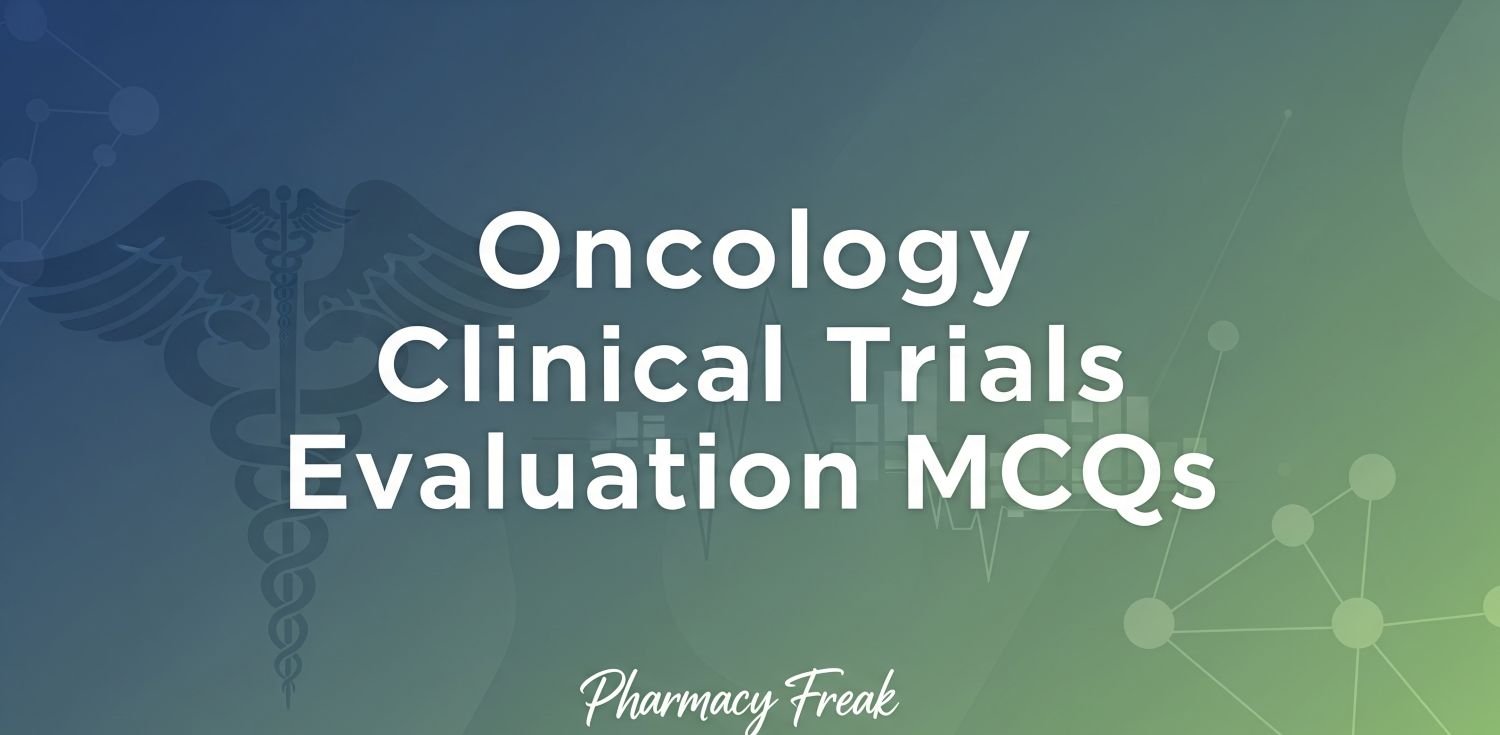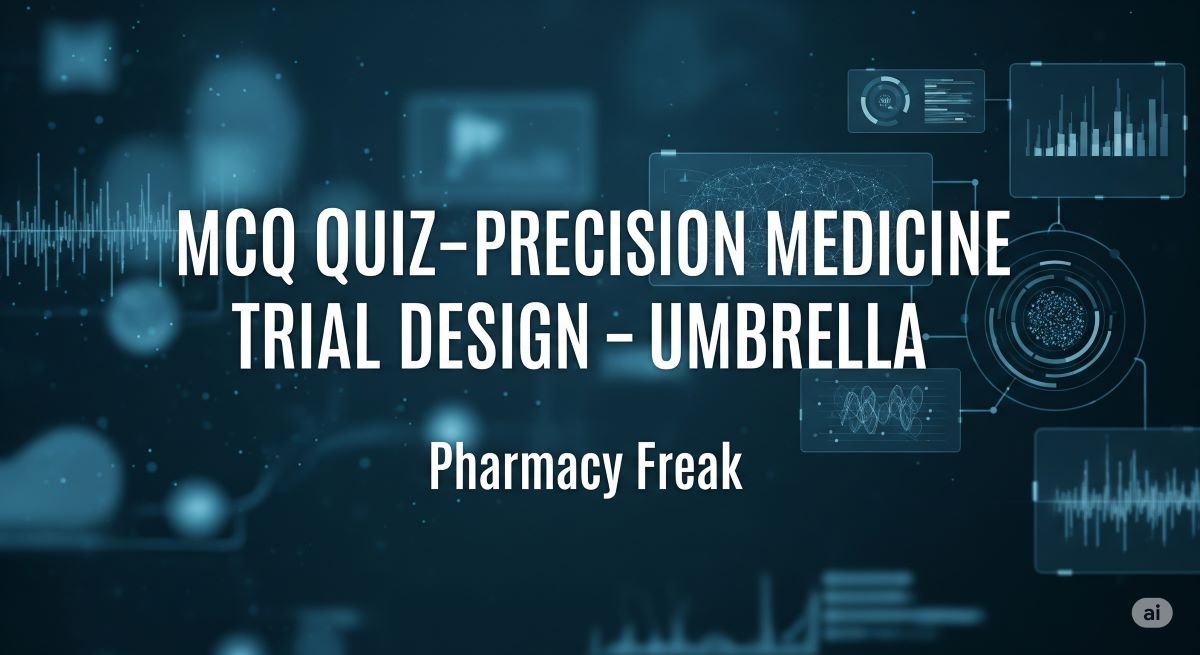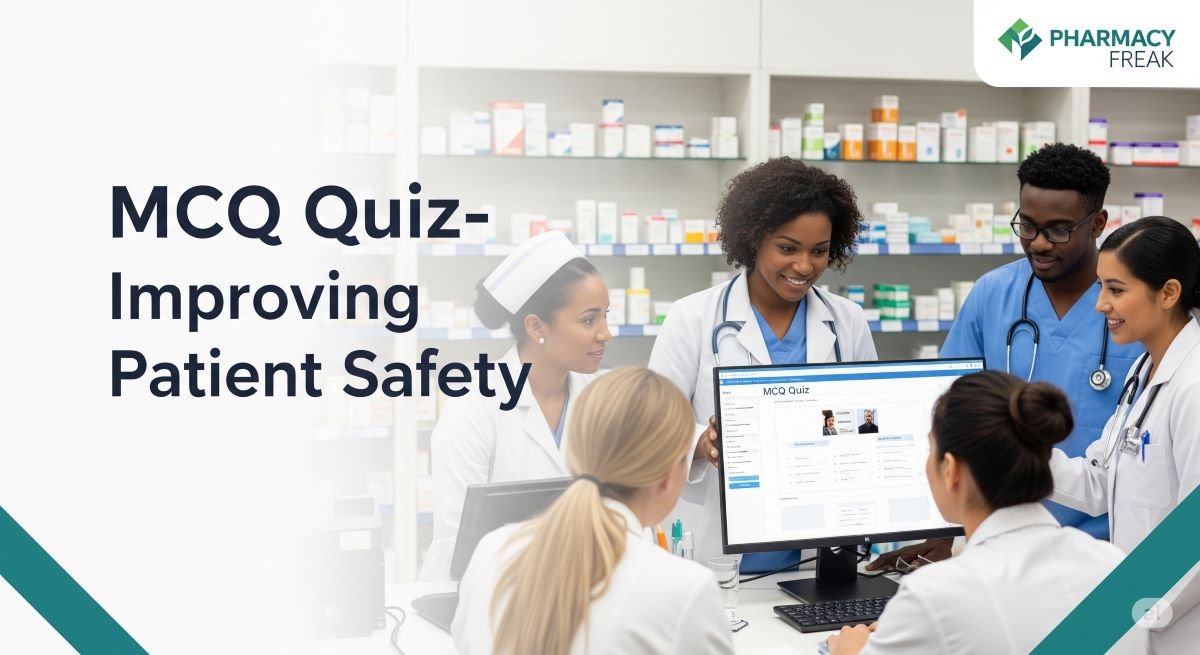

Succeed with Oncology Clinical Trials Evaluation MCQs
Oncology clinical trials drive every advance in cancer treatment. These MCQs challenge you to critically evaluate trial design, interpret clinical outcomes, and apply the latest evidence to patient care. Whether you’re prepping for exams or building research skills, mastering these questions is key for any pharmacy professional working in oncology.
What’s Covered in Oncology Clinical Trials Evaluation?
This subject explores how cancer trials are designed, analyzed, and translated into practice. You’ll learn about phases of oncology trials, key endpoints, study populations, randomization, blinding, and statistical interpretation. Special focus goes to unique aspects of oncology research, like surrogate endpoints and toxicity assessments.
What Will Oncology Clinical Trials MCQs Test?
Core Focus Areas
Trial Design and Phases:
Expect questions on differences between phase I, II, III, and IV oncology trials, including objectives, sample sizes, and endpoints.Endpoints and Outcomes:
MCQs will test your knowledge of overall survival, progression-free survival, response rates, quality of life measures, and surrogate endpoints.Statistical Interpretation:
You’ll see questions about interpreting hazard ratios, confidence intervals, p-values, Kaplan-Meier curves, and significance in the context of cancer studies.Bias and Validity:
Some MCQs focus on sources of bias, confounders, patient selection, and the strengths and limitations of various study designs.Safety and Adverse Events:
Expect scenarios evaluating toxicity data, adverse event reporting, and the impact of side effects on clinical outcomes.Applying Evidence to Practice:
Look for questions that require you to translate trial findings into treatment recommendations, patient counseling, or formulary decisions.
Why These MCQs Matter
Here’s the thing: every cancer therapy used today started as a clinical trial. Understanding how to interpret and apply oncology trial data is critical for safe, evidence-based patient care. These MCQs help you develop the judgment needed to make sense of complex studies and turn research into results.
Tips for Success with Oncology Clinical Trials MCQs
1. Understand Trial Phases:
Be clear on what each phase tests and why that matters for drug approval and use.
2. Focus on Endpoints:
Prioritize answers that relate to patient-centered outcomes—survival, progression, and quality of life.
3. Read Statistics Carefully:
Don’t just look at p-values. Hazard ratios, confidence intervals, and event rates all tell part of the story.
4. Assess Study Quality:
Consider the design, sample size, blinding, and follow-up—strong studies make stronger recommendations.
5. Think About Real-World Impact:
Choose responses that improve patient care, account for toxicity, and use evidence for decision-making.
Building Your Oncology Research Expertise
Mastering Oncology Clinical Trials Evaluation MCQs prepares you to interpret new therapies, guide patients, and collaborate in research-driven care. Use every question to strengthen your critical thinking and bring the latest cancer evidence into your pharmacy practice.







